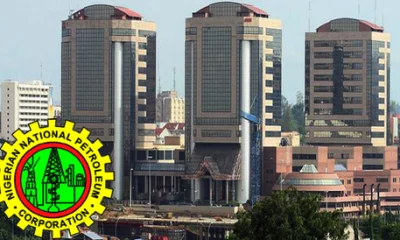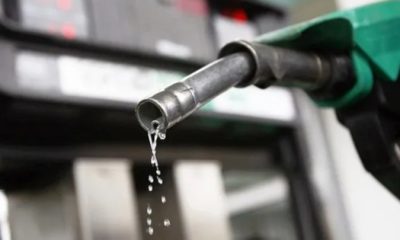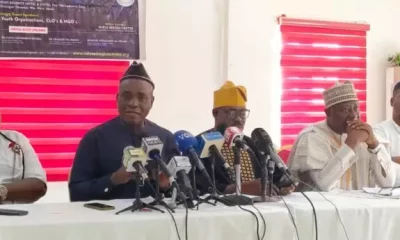Headline
NNPC To Discontinue Crude Swap, Targets Cash Payments For Petrol Imports
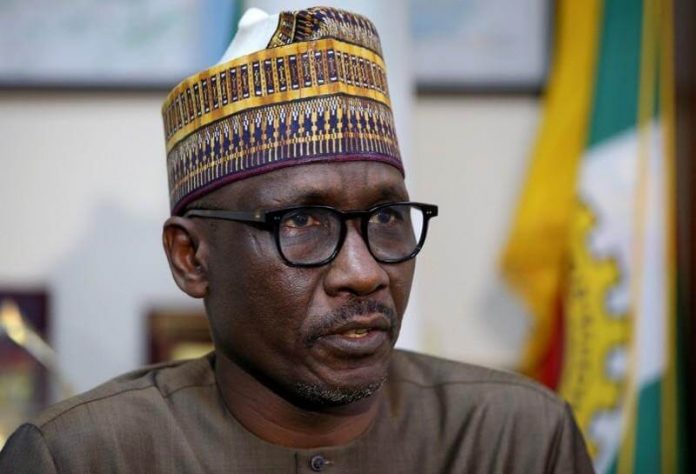
With the removal of subsidy on petrol in the country, the Nigerian National Petroleum Company Limited (NNPC) is set to discontinue crude oil swap in favour of cash payments for petrol imports.
To this effect, the company is is winding down crude oil swap contracts with traders and will pay cash for petrol imports as private companies could begin importing petrol as soon as this month, Reuters reports.
This means that NNPC is in the process of ending crude swap contracts with traders. Instead of exchanging crude oil for refined petroleum products, the state-oil company will now make cash payments for petrol imports.
The move is part of President Bola Tinubu’s plans to deregulate the petrol market and reduce the burden on government finances, the statement said.
President Bola Tinubu on Monday during his inauguration announced that “subsidy is gone” sending the market into a tailspin as those who had the products quickly shut their pumps and long queues emerged across the nation.
NNPC has been importing petrol from consortiums of foreign and local trading firms and repaying them with crude oil via what is known as Direct Sale Direct Purchase (DSDP) contracts since 2016 because it does not have enough cash to pay for the purchases, the statement said.
“In the last four months, we practically terminated all DSDP contracts. And we now have an arm’s-length process where we can pay cash for the imports,” Mele Kyari, group chief executive officer, NNPC told Reuters in an interview late on Saturday.
“This is the first time NNPC has said it is terminating crude swap contracts. By importing less gasoline as private companies import the bulk, NNPC will be able to pay for its purchases in cash.”
Nigeria is Africa’s biggest crude producer but imports most of its refined products after running down its refineries. Nigeria’s petrol import bill hit N5.2 trillion in 2022, the highest in six years, as the quest by the country to wean itself off imported fuel drags.
A significant drop in oil production last year coupled with high global fuel prices due to the war in Ukraine pushed NNPC’s debt to traders higher. It owed the consortiums about $2 billion, a September 2022 NNPC report to the Federation Account Allocation Committee shows, the statement said.
“An industry source with direct knowledge of the matter said NNPC was still allocating crude for fuel swaps for July loading, though less than in previous months. In its report detailing March crude oil loadings, NNPC also allocated crude to the swap contracts held by the consortiums,” Reuters said.
Kyari told Reuters that NNPC’s monopoly on petrol supplies was ending and private firms could start importing as early as this month.
“Nigeria’s total crude and condensate output was at 1.56 million barrels a day (bpd) as of Friday. Nigeria has struggled to meet its Organization of Petroleum Exporting Countries (OPEC) oil quota of 1.742 million bpd due to grand oil theft and illegal refining,” Kyari said.
That has raised doubts on whether Nigeria can meet supplies for the 650,000-bpd newly commissioned Dangote Refinery. NNPC has a contract to supply 300,000 bpd to the refinery.
Headline
Fagbemi warns against obstructing EFCC from performing its lawful duty

The Minister of Justice, Lateef Fagbemi, SAN has warned against obstructing the Economic and Financial Crimes Commission (EFCC) from carrying out its lawful duty .
Fagbemi’s warning is contained in a statement in Abuja.
“This is a matter of very grave concern, it is now beyond doubt that the EFCC is given power by the law to invite any person of interest to interact with them in the course of their investigations into any matter, regardless of status.
“Therefore, the least that we can all do when invited, is not to put any obstruction in the way of EFCC, but to honourably answer their invitation.
“A situation where public officials who are themselves subject of protection by law enforcement agents will set up a stratagem of obstruction to the civil and commendable efforts of the EFCC to perform its duty is to say the least, insufferably disquieting’’.
He added that running away from the law will not resolve issues at stake but only exacerbate them.
“Nigeria has a vibrant judicial system that is capable of protecting everyone who follows the rule of law in seeking protection.
“I therefore encourage anyone who has been invited by the EFCC or any other agency to immediately toe the path of decency and civility by honouring such invitation instead of embarking on a temporising self-help and escapism.
“This can only put our country in bad light before the rest of the world’’.
He said institutions of state should be allowed to function effectively and efficiently.
“I stand for the rule of law and will promptly call EFCC, and indeed any other agency to order when there is an indication of any transgressions of the fundamental rights of any Nigerian by any of the agencies’’.
NAN reports that the EFCC had on Wednesday warned members of the public that it was a criminal offence to obstruct officers of the Commission from carrying out their lawful duties.
Section 38(2)(a(b) of the EFCC Establishment Act makes it an offence to prevent officers of the Commission from carrying out their lawful duties. Culprits risk a jail term of not less than five years.
The warning , the EFCC said, became necessary against the background of the increasing tendency by persons and groups under investigation by the Commission to take the laws into their hands by recruiting thugs to obstruct lawful operations of the EFCC.
On several occasions, the anti graft agency said, operatives of the Commission have had to exercise utmost restraint in the face of such provocation to avoid a breakdown of law and order.
Headline
Unknown Gunmen Abduct Channelstv Reporter In Port-harcourt

Some unknown gunmen have kidnapped Joshua Rogers, the ChannelsTV reporter in Port-Harcourt, the Rivers State capital.
Politics Nigeria learnt that Rogers was picked up close to his residence at Rumuosi in Port Harcourt and to an unknown destination by the gunmen around 9pm on Thursday, April 11.
The reporter was driving his official ChannelsTV branded car when the hoodlums accosted, pointed a gun at him and took him away in the same vehicle.
Rogers was said to be returning from his official assignment in Government House after a trip to Andoni for a government event when the incident happened.
Already, the gunmen were said to have contacted his wife and demanded a N30million ransom for bis release.
His cameraman confirmed the incident and appealed to his abductors to set him free unconditionally.
-

 Business4 days ago
Business4 days agoSeplat Energy celebrates a decade of Dual Listing with Bell Ringing Ceremony at Nigerian Stock Exchange
-

 News4 days ago
News4 days agoBDCs now buying dollar at ₦980 — ABCON President
-

 Metro4 days ago
Metro4 days agoOsun Poly Student, Olanrewaju Olatona killed by hit-and-run one-way driver
-
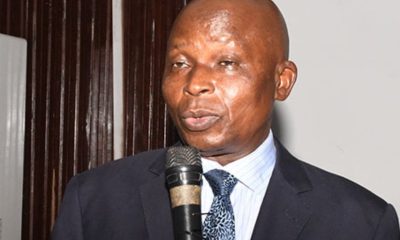
 Headline4 days ago
Headline4 days agoFagbemi warns against obstructing EFCC from performing its lawful duty
-

 News4 days ago
News4 days agoLASG’s maize palliative impactful, says poultry association chair
-

 News4 days ago
News4 days agoWoman killed while crossing road in Anambra

